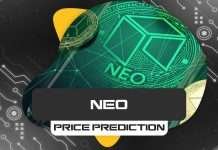
What Happened? What To Expect Next?
A brief introduction about what blockchain is should be apt, since it was what everyone was talking about last year, what everyone is going to talk about this year and so forth, for the simple reason that it is where the future is heading.
The faster we start accepting the fact that blockchain and cryptocurrency is the future the faster we can start using it in our businesses and incorporate it in our socio-economic lives.
In doing so we would start being ahead of the curve and be open to new opportunities that have to do with crypto and blockchain.
The aim is to fight scepticism against it, if we do our research and inform ourselves than this revolution of sorts will happen quicker and not forget that this is for the best of us!
The blockchain is a move away from a centralised method of transactions and shifts to the more favourable decentralised method. The explanation to these two terms is quite simple.
Centralised
In simple terms, a centralised method means that any form of transaction, let it be money or information is passed through one person or one company etc.
To get a clearer picture of the centralised method, companies like Facebook and even Google are centralised, this is because information is passing through them first and then to the public.
The main problem with this, and we have seen it happen and also experienced is that, companies might push a certain agenda, and since we rely heavily on Google and Facebook we are forced to adhere.
Decentralised
Decentralised is the complete opposite, decentralisation does not work with passing information through just one door but multiple.
Decentralisation works with peer to peer review. Instead of passing information through just one person, there will be multiple and in doing so there won’t be any form of agenda pushed because there are multiple people.
Last year at the DELTA summit John McAfee said that he believes we are on a shift and what we need now is education. He said this:
“We don’t need enforcement, what we need is education. If you know, for example, that an exchange is stealing from you, and everybody knows it, then we don’t need to shut the exchange down. It will shut itself down because it will have no customers, because no one will use it… It’s a different world
What this states is that we give the power to the people since decentralisation is peer to peer than people will ‘shut down the exchange’ in the sense that people will not use the exchange and force it to close and in doing so create a safer environment. Obviously, people will gravitate to safer options.

What happened in 2018
2018 was a massive year for Malta and blockchain, the massive DELTA summit took place last year were around 8,500 attendees and around 300 speakers and it set in stone that, Malta is ready to host companies pushing Blockchain and Crypto-currency, and is not sceptical about either of them, so much so that Malta has been nicknamed ‘The Blockchain Island’.
The investment in iGaming, Fintech and Blockchain industry have proven to be very fruitful when it comes to Malta’s economic growth.
They have proven so beneficial that the iGaming industry alone rounds up to around 12% of Maltas GDP (Gross Domestic Product) so the Government can only imagine what Fintech and Blockchain have in store for the Island.
What will this 2019 hold?
One can only assume that since these 3 pillars of Blockchain, Fintech and iGaming have helped Malta so much that the government will continue to invest heavily in them on continue to attract companies with new laws and regulations that will favour the business.
Other than that Brexit seems to be looming around the corner, and if England actually does leave Europe there will be a big shift with regards to Fintech.
London is one of the biggest, if not the biggest host of Fintech in Europe and leaving England will mean that companies will not have freedom of movement anymore, and that is essential when running a company in Europe.
What Malta can do now is push the Fintech industry so that companies from England come to reside in Malta if Brexit actually happens.
Other than that this year in Malta there will be another Blockchain summit that will host a variety of different speakers with different ideas and experiences on Blockchain, iGaming, and Fintech.
Speakers like the Founding Father of Blockchain W. Scott Stornetta, John McAfee and also the AI bot Sophia will be making an appearance at the summit also!
There are two editions of The Malta AI and Blockchain summit, the Spring edition which will take place 23-24 May and the Winter edition which will take place on the 07 and 08 of November. For more information, you can click here.
Another major thing that we can expect is the Ethereum Hardfork which is touted to happen in January.
Conclusion.
In conclusion, Malta has been pushing the Blockchain industry for a long time now, and since the massive growth in the iGaming sector, it has encouraged the government to research and invest in new technologies that may very well prove beneficial to the Islands growth.
The idea is to stay ahead of the competition, to also be ready to welcome and accept new ideas, technologies and companies so that in turn they will help Malta’s economy grow.
It is that type of progressive thinking that made Malta invest in iGaming way back in the beginning of the century and what will continue to propel us forward.
What everyone else has to do is not be quick to judge and be open to change, the world is at a crossroads of change right now, it shifting for the better and we should not hold it back!
Have a read at our update about EU countries and blockchain after Italy announced that they will introduce new regulations.



![Bitcoin Buyer Review of Official Website [2022] bitcoin buyer review featured image](https://bitemycoin.com/wp-content/uploads/2022/04/bitcoin-buyer-review-featured-218x150.jpg)
![Bitcoin Digital | Official Website Review [2022] bitcoin digital review featured](https://bitemycoin.com/wp-content/uploads/2022/04/bitcoin-digital-featured-218x150.jpg)



